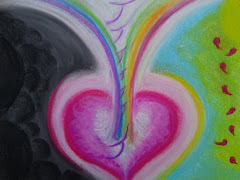Picture the scene. You are merrily taking a day trip out with your partner and all is going very well. You are chatting and laughing together about people and life and nothing in the world seems to matter more than these precious moments. Your banter is high and the flow of energy congruent and easy between you. You look with fond eyes and have lots of warm fuzzy feelings thinking how wonderful your beau is in so many ways.
 Then suddenly, unknown to them, they say something that, like a flick of a switch, sends your inner world plummeting into darkness and angst. They may have suddenly dropped the name of their ex, one too many times, into the conversation or held the gaze of the “bit of stuff” as they walked by or they mention in a sweet way what a pain in the ass your mum is or they may say something about your physical appearance or your weight.....the list goes on.
Then suddenly, unknown to them, they say something that, like a flick of a switch, sends your inner world plummeting into darkness and angst. They may have suddenly dropped the name of their ex, one too many times, into the conversation or held the gaze of the “bit of stuff” as they walked by or they mention in a sweet way what a pain in the ass your mum is or they may say something about your physical appearance or your weight.....the list goes on.Your body suddenly goes into “I’m in charge” mode and you sit there surging with feelings. You feel taken over, some people tell me, with demonic proportions and you can’t think straight. Many people, including myself, describe these moments as an emotional punch in the guts or a sudden rising sickness or huge anger or a need to defend yourself in some way.
Anatomically, cortisol, one of the fight or flight hormones is rampaging around your body like an invasion from an opposing army. At this point you may feel like running and hiding or standing and fighting..the options are, in the moment, many, but scary.
These moments are called your “triggers”. They are the body’s way of signalling where, in your body/mind/spirit, negative experiences from the past are still causing you angst and to what degree. The magnitude of your feelings varies according to the pain you felt originally i.e. when the emotional “wounding” occurred and the degree to which you have sorted it out during your lifetime.
When we are triggered we often don’t know where the originating painful experience lies. We focus on what our partner has said or done and that is deemed, by the mind, the be the cause. What follows often and in my experience with couples who are struggling to get through conflict, is a whole lot of blame, pain and finger pointing with the requests and demands that the other should resolve their upset.
What I want to do with this way of looking at relationship problems is to turn it on its head completely. Our partners WILL push pain buttons in us with words or actions to show us where healing and growth are required in us, not them. The greatest mis-understanding is “this is hurting me therefore it is your fault”. Sadly humanity is only at the beginning of knowing that inner pain means “my stuff not yours” and love relationships seem to be where this war is still very much at large.
I will go further and say that our partners are meant to push our buttons and the purpose of adult intimate relationships is to heal and grow from childhood and the lovely quote from the Jewish philosopher, Martin Buber “the purpose of a relationship, is a helpmate in opposition”, springs to mind.
Depending on your adaptive way of dealing with conflict in childhood, by either retreating or going into battle, you will carry that style into adulthood which by now is a deeply ingrained pattern. Then what seems as some Divine buggar up, you pitch up in a love relationship with your opposite style of dealing with conflict. I digress....
So there you are feeling all sorts of angst and discomfort, your partner is looking a little perplexed and may start to notice by asking if there is anything wrong to which you will probably say at first “oh nothing” but you are secretly seething. I want to say “why hold it in ?” but therein lies all sorts of potential hazards.
At this moment I am pressing PAUSE on our mini potential drama, to help you understand your choices :
Ok let’s start with playing the movie of what could happen. After several attempts by your partner to find out what’s wrong you decide to :
- Let them have it with a barrage of words to feed your pain. You may swear, throw things or even go for the biggie of physical attack until you have off loaded. But what then ? Guilt and a possible rift and alot said that needs to be forgiven and healed in both of you. Relationships are a game for two and this way you are trampling on the relationship space. See previous article http://ginahardy.blogspot.com/2010/02/your-relationship-space-beirut-or-bliss.html .This scene is the horror movie and not advised at any costs. You may then trigger your partner who may mirror you by giving as good as they get and a game of trying to win ensues, however clever the tactics you employ, are.
- Retreat into a well lived-in shell and put up the highest defence you can. You may walk out, make an excuse to go and do something else or blah blah...whatever ! Your partner is not welcome here and you will not be budged. They can make all the effort to repair the mess and the hurt they have caused you before you are willing to come out of hiding. This movie, like Castaway, is one of isolation and loneliness. Again it is not just about you, but two.
Unconscious relationships swing in polarity as above. Allow me to suggest with minor role play, what a conscious healthy relationship would do...excuse the basic language but you can get the general idea :
- My partner says something I find painful and it triggers a possible reaction. I notice what’s happening in me and register that “yes” I feel rubbish in this moment. I take time (a few seconds, minutes) to allow the feelings to be there without jumping in to react. PAUSE.
- I say to my loved one, aiming to stay connected to him/her, “honey I really feel triggered by what you just said/did. I feel hurt/angry/injured etc”. That way I am not sending accusatory messages to hit my partner’s tender spots. I am now starting to own my pain and just expressing how I feel.
- At this point depending on the depth and power of my feelings I can either articulate to my honey that I just need to find a place to calm down and I will come and talk in an hour or so or I may choose to explain how I feel in the moment.
- A word of caution here. The cortisol surging in the body is at its strongest in the first 20 minutes after you feel triggered, so any exchange of words at this time carries a health warning that a row can easily develop if full self control is not exerted. Tough when you are feeling overcome with emotion.
- Notice and observe yourself as much as you can.
- If your tendency is to want to react with a barrage of words and brain to mouth has a habit of reacting at lightning speed then my heart goes out to you. I was and am, to a smaller extent, one of those people. It is not your fault you feel that way but it is your fault if you let rip unguarded. You will injure for sure then there is double pain. Only when you have calmed down and can meet your partner in a safe relational space to communicate with respect, will you be met where you need to be met thus being able to say how you feel and what you need from your partner.
- If you want to run and not face any potential conflict, again my heart goes out to you. But shutting down is as much hard work for your relationship, although less noisy. When you have calmed down make that commitment to come back to your partner and explain what it is you feel and what you need from your partner.
Our partner’s “job” in all this is to help create a safe space to “come and talk” when the triggered state has worn off. Safety is critical for the triggered party in order to feel they can say what needs to be said. Notice your reactive style and its impact on your partner. It is not to tell you to pussy foot or tread on egg shells to suit your partner but it is to respect the relational space and getting it off your chest can be done, but with kindness.
We are all very varied and there are a thousands of triggers and situations but we all share the basic human craving for love and approval. It never dies in us no matter how old we get and when we don’t get it or it is threatened to be withdrawn, our systems go into overdrive to protect us from potential “death”. Sounds very dramatic but our reptilian brain, or “old brain” only knows to protect the body from threats and death and it is that part of the brain that overpowers us when we are triggered. Fight or flight is it’s only two reactive states.
So my lovely Conscious Union readers, take from this what makes sense to you and slowly slowly in your daily interactions with your nearest and dearest and others for that matter, test this different way out. Recognise that it is you that can change this world from conflict to peace and help yourself heal and grow beyond your wildest dreams in the process. Love is all there is when we let go. Namaste.




